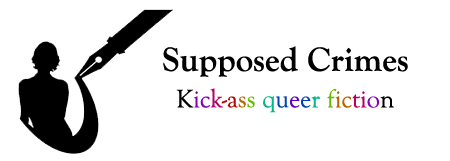
Today, I have the privilege of featuring Dan Ackerman. If you haven't read it, you should definitely check out October's new release, That Doesn't Belong Here. (Isn't that title fantastic?) Dan's a heck of a cool person, as you'll see from the interview.
What is the hardest part of writing?
For me, it’s having the time to write. I’m a night owl and always have been, but I work in a school, which means I’m up early and home late. Once I hit a good stride with writing, I can work for hours...which often takes me to two or three in the morning, which isn’t compatible with my schedule for the school year. I end up doing a lot of writing during school vacation, especially over summer break.
Are there any common themes you see in your work?
Although I am not a religious person - I don’t attend church, I wasn’t raised with any religious person - I find a lot of my work ends up dealing with faith and religion. Because I wasn’t raised to hold anything particularly sacred, I think that makes it easier for me to break down the Christian mythologies and play with them. From the outside looking in, religion is something that I’ve always found interesting. I never understood how people could take things on faith and believe without any evidence, so a lot of my characters end up being able to do what I can’t in that regard. I don’t want to say that religion or spirituality is something I’m missing in my life, but it’s important to a lot of people, therefore I want to understand it better.
Another theme I end up with a lot is love. I’m not a sentimental person and I don’t come from a close-knit family (it isn’t that we don’t love each other, I don’t want to imply that I come from a broken home, but growing up there was a lot of myself that I kept isolated from my family; in some ways, I still do), so I was kind of blown away when I looked at my work and realized how many of them ended up being stories about falling in love or about finding a family.
What inspired you to write your latest story?
The last thing I wrote ended up being a reflection on the way we treat the mentally ill in fiction. There’s a lot of representation for people with mental illness, but none of it is positive. People with disabilities are almost always shown as dangerous or burdensome. They’re the bad guy, a serial killer or stalker or kidnapper, when in reality, people with disabilities are more likely to be the victims of violence. As someone who is neurodiverse and who works with this sort of population, I want to see a hopeful future for the mentally ill.
In this story, the main character, David, has his struggles with mental illness, with how he expects to be perceived, as well as his internalization of those perceptions. I put in a lot of effort to hopefully depict things accurately and I hope that shows. I wanted to portray him as a genuine person who’s picking up the pieces and figuring out what he wants to do with his life. I want to show a character who has a psychosis and is a good person, who deserves and finds a happy way to live his life.
Do you have any pets?
Yes! A dog, two cats, three rats, and a hamster (we used to have more hamsters, but the little guys don’t have long life expectancies).
What genre (other than your own) do you like to read?
Growing up, I never got into short stories or poetry. I read novels, almost exclusively, but as I’ve gotten older, I’ve started to read a lot more comic books. I love Swamp Thing and Hellblazer, but I’m also a big fan of the new series like Saga.
I also don’t write YA, but there are some young adult series I enjoy, like Six of Crows by Leigh Bardugo, the Modern Faerie Tales by Holly Black and the Abhorsen series by Garth Nix.
What was the last thing you read?
The last thing I read was a comic called Enigma by Peter Milligan. It’s older, it was published in 1995, but I enjoyed it. It’s got some cape stuff (it deals with superheros), but it’s also got a dark mood to it, too, which I always enjoy, and I loved Duncan Fegredo’s art style. It’s a comic that deals with finding your identity, sexual and otherwise.
